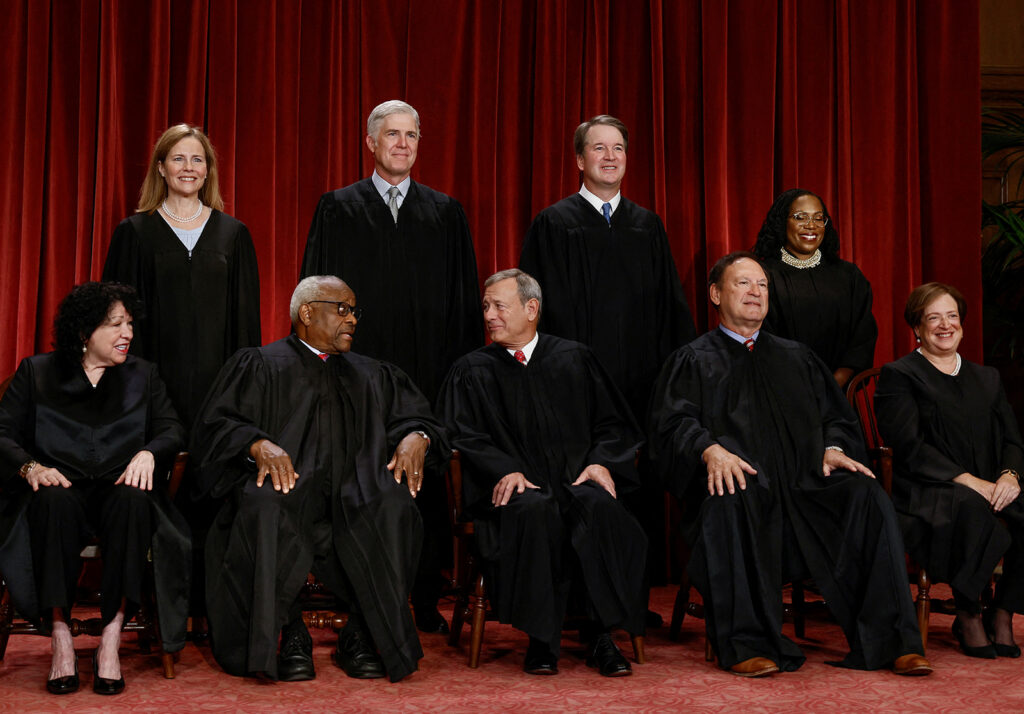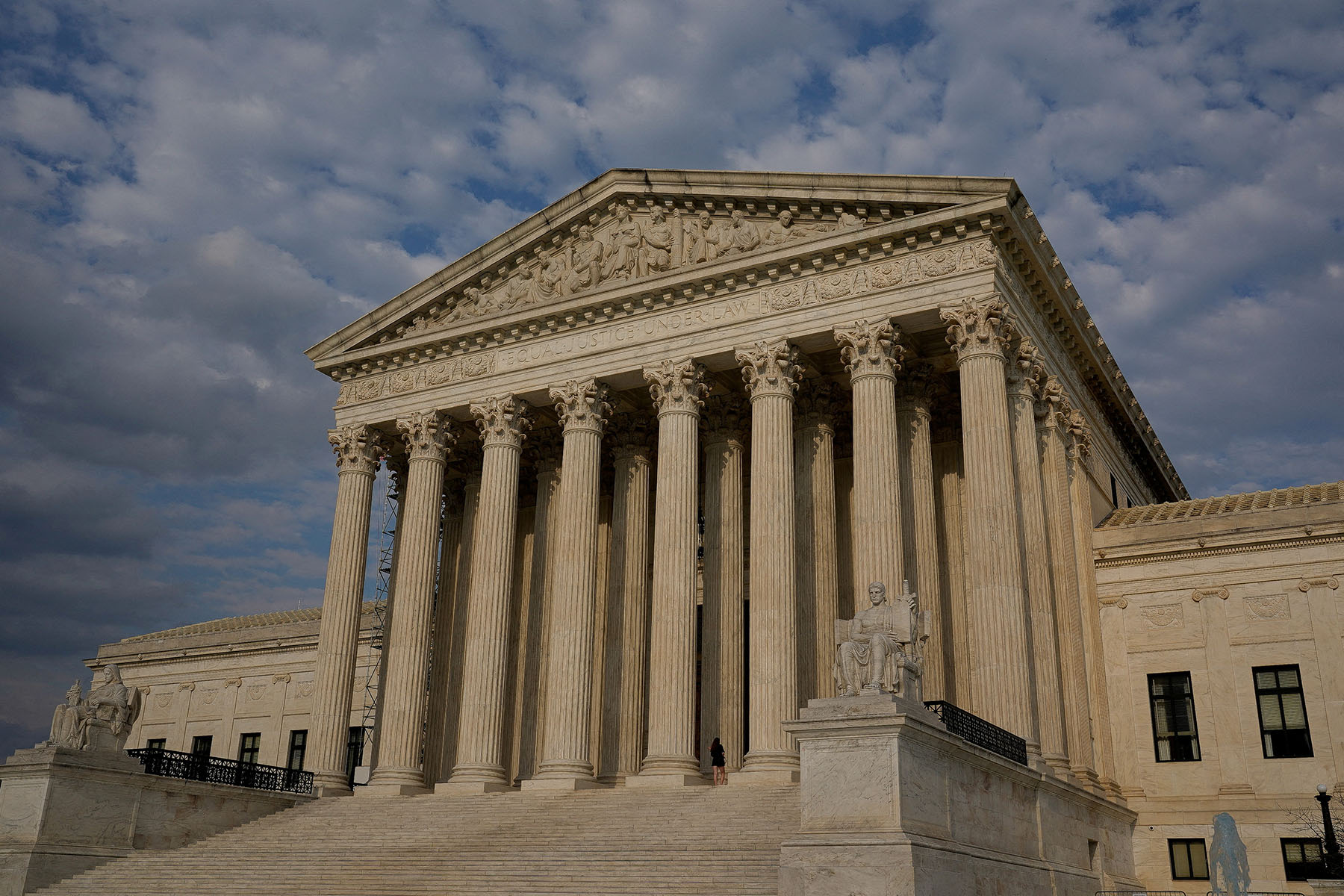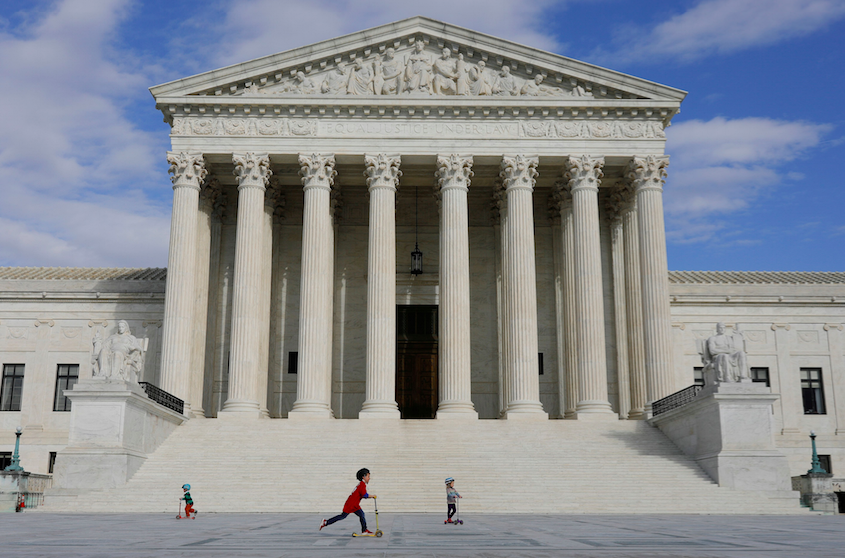The Supreme Court brought new clarity to the First Amendment standard that applies to “true threats” on June 27 in the case of a Colorado man who sent thousands of harassing messages to a musician, requiring prosecutors to prove that a defendant was reckless.
In Counterman v. Colorado, the court considered whether intent is necessary to constitute a “true threat” — a category of speech that is unprotected by the First Amendment.
“The State must prove in true-threats cases that the defendant had some subjective understanding of his statements’ threatening nature, but the First Amendment requires no more demanding a showing than recklessness,” wrote Justice Elena Kagan for the majority in the court’s 7-2 decision.
Recklessness, Justice Kagan wrote, “means that a speaker is aware ‘that others could regard his statements as’ threatening violence and ‘delivers them anyway.’”
Billy Raymond Counterman sent thousands of Facebook messages to Colorado musician Coles Whalen from 2014 to 2016. The messages frightened Whalen, as one told her to “F*ck off permanently” and another read “You’re not being good for human relations. Die. Don’t need you.” Despite being blocked by Whalen between “four and eight times,” according to court records, Counterman created separate accounts under different names to continue the online harassment.
“I’m currently unsupervised. I know, it freaks me out too, but the possibilities are endless,” another message read. Others suggested Counterman was watching Whalen, as one asked if she was in a white Jeep, and another read: “Five years on Facebook. Only a couple physical sightings.”
In 2016, Counterman was arrested and convicted under a Colorado anti-stalking law for 17 of his messages to Whalen, and in 2017 was sentenced to four and a half years in prison. Counterman appealed his conviction on First Amendment grounds, but the Colorado Court of Appeals affirmed it in July 2021 and held that Counterman’s messages were true threats.
Supreme Court Considers ‘True Threats’ Doctrine in Colorado Social Media Stalking Case
The stricter test would require that those “who are making threatening communications” must at least have “an awareness of a substantial risk that their communications could be viewed as threatening,” said Jon Kurland, attorney advisor with AEquitas. AEquitas is a non-profit organization which signed onto an amicus brief on behalf of Colorado, and is composed of former prosecutors focused on the “quality of justice in gender-based violence and human trafficking cases.”
Kurland said he thinks the “holding could’ve been a lot worse,” and that the standard the court required regarding an offender’s mental state is one that many prosecutors already address.
The Counterman decision, Kurland added, doesn’t impact cases of typical stalking or similar criminal acts. “Really the only sort of intersection that the Counterman court found with stalking and the First Amendment is that where the stalking conduct is composed of communications,” he said.
Justice Kagan noted that upholding Counterman’s conviction ran the risk of chilling other types of protected speech.
“As with any balance,” Justice Kagan wrote, “something is lost on both sides: The rule we adopt today is neither the most speech-protective nor the most sensitive to the dangers of true threats.”
“The speaker’s fear of mistaking whether a statement is a threat; his fear of the legal system getting that judgment wrong; his fear, in any event, of incurring legal costs — all those may lead him to swallow words that are in fact not true threats,” she wrote.
June 27, 2023 — Counterman v. Colorado decision


